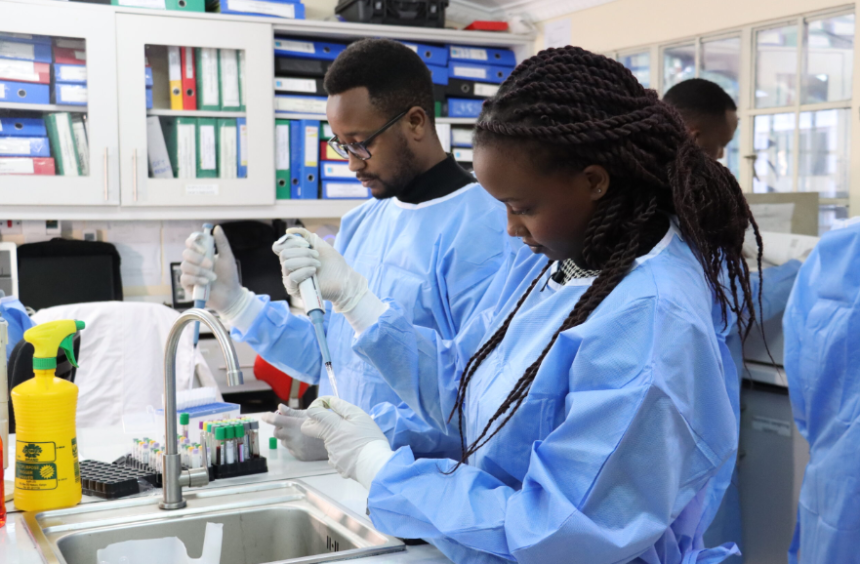In Kisumu, a nurse closely monitors as a six-month-old boy breathes into a small hand-held device. Within minutes, the result appears on the screen – the child has tuberculosis (TB). No invasive needles, no tedious sputum collection, and no prolonged wait for lab results.
For thousands of Kenyan children at risk of TB, this breath test is a groundbreaking development. Although the Ministry of Health reports that around 6,000 children are diagnosed with TB annually, hundreds more remain undiagnosed. Traditionally, testing sputum for the bacteria is the gold standard for TB diagnosis. However, young children often cannot produce enough sputum for accurate testing.
Researchers have been trialing a new device called an electronic nose (e-nose), which detects TB in the breath of small children and provides results in just six minutes. Tested on 118 children at the Jaramogi Oginga Odinga Teaching and Referral Hospital, the device showed promising results.
“We found that breath analysis with an e-nose had high sensitivity (86 percent) and moderate specificity (42 percent) in microbiologically confirmed TB cases among children younger than five years in Kenya,” the researchers stated in their study, titled *Exhaled Breath Analysis: A Promising Triage Test for Tuberculosis in Young Children*, which will be published in December in the *Tuberculosis* journal.
While these findings do not yet meet the World Health Organization (WHO) targets for a triage test – which require a sensitivity of more than 90 percent and specificity above 70 percent – the results are encouraging for further development. Sensitivity measures a test’s ability to accurately identify the presence of disease, while specificity assesses its ability to correctly identify the absence of disease.
The study’s authors include experts from the Kenya Medical Research Institute, the Centers for Disease Control and Prevention, and institutions such as the University of Oxford, Maastricht University Medical Centre, Yale University, Boston Children’s Hospital, and Harvard Medical School. The e-nose device is produced by the eNose Company.
In Kenya, infants and young children are particularly vulnerable to severe and often fatal forms of TB. Deaths are higher among children under five compared to those between the ages of six and 14, largely due to underdiagnosis and the lack of child-friendly medications. Health workers are urged to make every effort to obtain specimens for bacteriological confirmation of TB in children, according to the National Tuberculosis, Leprosy and Lung Disease Programme guidelines.
The e-nose test is currently limited to diagnosing pulmonary TB, which affects the lungs. Most TB diagnoses in Kenya are still carried out using the GeneXpert system.


